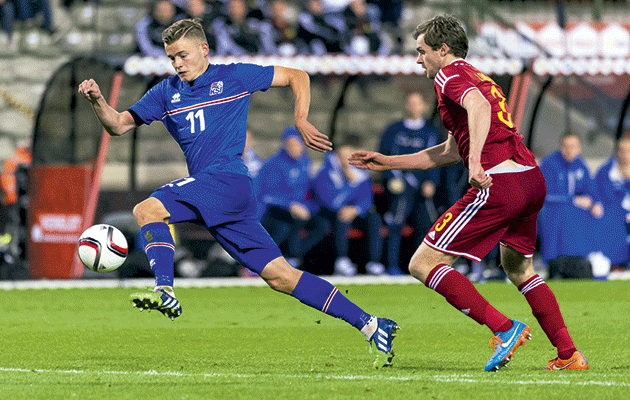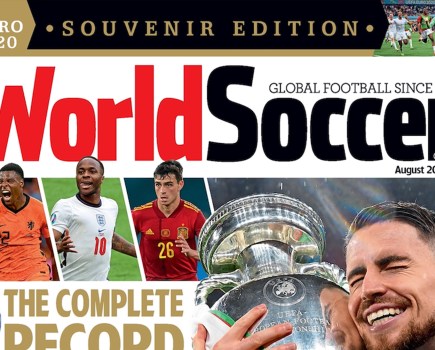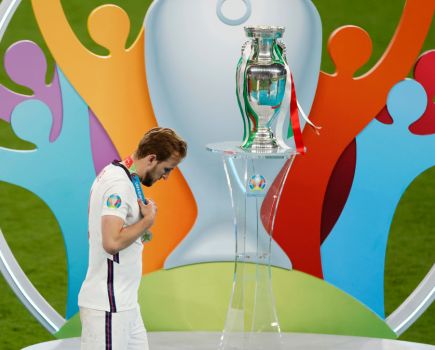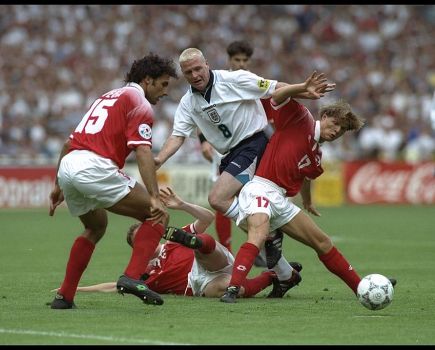Overview
Iceland became the smallest nation to qualify for a European Championship finals when they drew with Kazakhstan in September. It followed home-and-away wins over Holland, as well as victories over Turkey and the Czech Republic.
Iceland came close to qualifying for the 2014 World Cup but lost to Croatia in a play-off in November 2013.
Iceland has a population of just 360,000 – the same size as Coventry – and only has 21,508 registered players. But a programme of investment in facilities, including indoor and all-weather pitches, means football can be played all year round.
Iceland have enjoyed success at under-
21 level, with many of the side that reached the 2011 Euro Under-21 finals progressing to the senior side.
Few of the senior side play in domestic football and are spread across Europe. Hannes Halldorsson is with NEC in Holland, Kolbeinn Sigthorsson moved to France this summer, while Albert Finnbogason is reviving his career at Olympiakos after it stalled at Real Sociedad. Aron Gunnarsson plays in the English second tier, while Johann Berg Gudmundsson is at Charlton Athletic and veteran Eidur Gudjonsson, now aged 37, plays in China.
Tactics
There is no inferiority complex with Iceland, who play a well-structured 4-4-2, underpinned by an attack-minded philosophy. Midfielder Gylfi Sigurdsson can play further forward, while the veteran Gudjonsson, the country’s all-time top scorer, often comes off the bench.
Kolbeinn Sigthorsson
If national coaches Lars Lagerback and Heimir Hallgrimsson were to be granted three wishes for next summer’s finals, it’s likely that one of the requests would be a fitness guarantee for their main striker.
Although an ever-present on the road to France, the 25-year-old’s lengthy spell with Ajax, from 2011 to 2015, was littered with injuries, and on moving to French side Nantes this summer he almost immediately went to accident and emergency, involved in a car crash, which fortunately, only required minimal treatment.
In their quest to keep the surprises coming in 2016, Iceland will undoubtedly need Sigthorsson at the peak of his powers. A good mix of force and finesse, he is mobile, strong in the air and a proven marksman at this level – boasting 17 goals in 31 appearances for his country – and
he is the ideal attacking focal point of the team’s finely structured 4-4-2. Hard to out-muscle, he is well versed in holding the ball up and is very unselfish.
Sigthorsson, who first came to Euro-wide attention when scoring 15 Eredivisie goals for AZ in 2010-11, typifies the pronounced work ethic and energy of the Icelanders. Never pausing for breath, he will fight for every ball, show for every pass and make run after run for 90 minutes and beyond. Defenders prone to lapses in concentration may have a problem here.
Rumoured in recent years to be attracting interest from several quarters in England (QPR, Swansea City and West Ham United), the Reykjavik-born front man has a history of being courted by the big boys. As a talented junior with HK and Vikingur, he once counted Real Madrid and Arsenal among his admirers, and even had the chance to join the latter, only to be deterred from doing so by the bitter experience of his brother, Andri, whose career at Bayern Munich was cut short by injury while still a teenager.
Andri is now Kolbeinn’s agent. How the world turns.
Star man
Gylfi Sigurdsson
The midfielder is his country’s most high-profile player and is Iceland’s top scorer
in the qualifying campaign so far.
Co-coaches
Lars Lagerback & Heimir Hallgrimsson
Swede Lagerbeck coached Sweden and Nigeria at World Cup finals and will hand over to his co-coach Hallgrimsson after next summer European finals.








